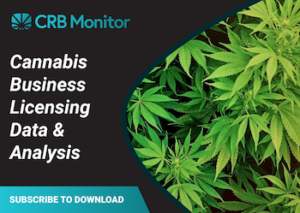Roughly two years after New Jersey opened its adult-use market, the state’s Cannabis Regulatory Commission lifted the one-year deadline for conditional licensees to convert to annual licenses in light of ongoing approval hurdles from local governments.
The move holds the door for prospective social equity owners who have struggled to open their businesses after receiving their conditional licenses amid New Jersey’s tight municipal hurdles for cannabis operators.
“There are a lot of external factors that are preventing entities from becoming operational within this 365-day time frame,” said Commission Chief Counsel Christopher Riggs during the April 11 meeting.
Conditional licenses, originally created to enable social equity applicants to get their foot in the door, do not allow them to open for business. Before they can get approved for an annual license, which would allow operations to begin, the applicant must secure property through a lease or the purchase of land. They must also obtain municipal approval, which can require another set of hoops to jump through, depending on the jurisdiction.
“A lot of the holdup is the municipal approval process. Some folks are being held up in zoning offices. We’re also seeing investors pulling away,” said Wesley McWhite, CRC director of Diversity and Inclusion.
The time limit between receiving a conditional license and applying for a final license was originally 90 days, but it was later extended by the CRC to one full year.
Aside from conditional adult-use licenses, almost half of the 44 medical market licenses, which were announced in a 2019 Request for Applicants (RFA) and awarded in December 2021, are still unopen for business. The commission also waived those deadlines at the meeting.
“Out of the 44 of the 2019 RFA awardees, 21 are still waiting to become operational,” said Commissioner Maria Del Cid-Kosso. “We are seeing that these awards are facing external factors that are beyond their control such as local permit delays and construction build outs.”
New Jersey allows its municipalities to determine which class of licenses, if any, are allowed to operate and require local approval processes in addition to the state’s. They can regulate location and hours of operation and can levy up to 2% in sales taxes.
Wide gulf between pending licenses and open cannabis businesses
New Jersey has 564 municipalities. Of those, only 175 allow retail. Slightly fewer allow cultivation or manufacturing, 173 and 174 respectively, while 124 allow delivery.
The state currently has 154 active medical and adult-use dispensaries, 37 cultivator licenses and 24 manufacturing licenses, according to the CRB Monitor license database.
The database also shows 1,412 tentatively approved licenses for cultivation, manufacturing or retail, which suggests a substantial gulf exists between pending licenses and licensed operations in business.
Of those who obtained conditional adult-use licenses, 394 have yet to request an onsite inspection from state regulators, which must take place before final approval from the commission.
“Facilities are not yet built or remain under construction, and there are delays within local approvals,” said Cid-Kosso. “This waiver is going to help cannabis businesses that may be at risk of losing their licenses due to these delays caused by external factors.”
Riggs noted that along with the deadline waivers, the applicants will still be expected to regularly provide status updates to the CRC.
“If there is a lack of communication, a notice will go out to that entity indicating that you may be subject to having your award rescinded if you do not communicate with the field monitor. So we are going to hold everybody’s feet to the fire, but they are not subject to that 365-day time frame,” he said.
During the same meeting, the CRC approved 17 conditional licenses, 15 conditional-to-annual license conversions, four annual license applications and three adult-use expansions for medical license holders.
The CRC also revoked six previous conditional licenses because the applicants failed to pay the applicable fees on time.













